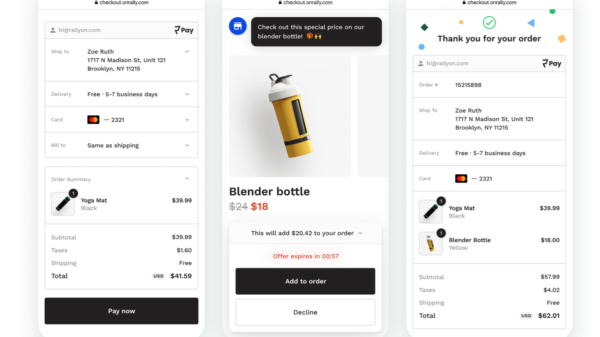As we head into the next Congress, we do so knowing that that millions of dollars have been spent sending negative campaign messages over our airwaves and to our phones and mailboxes, highlighting the things that divide us. There is no question that our national discourse has gotten more heated, more divisive, and more polarized. As we saw in the last Congress, when all we do is talk about things that tear the country apart, it is difficult to get anything done on a bipartisan basis.
In spite of this polarization, there is one issue that does bring millions of Americans of all political persuasions together: the need for stronger privacy and security protections for our personal information.
Republicans and Democrats, Senators and House members, and a wide-ranging coalition of business, consumer, civil rights, and privacy groups — including my organization, the National Consumers League — came together this year to craft a comprehensive national privacy bill.
The version of the ADPPA that passed out of the House Energy and Commerce Committee this summer didn’t include everything that all of us wanted. However, it did represent hundreds of hours of communication, compromise, and careful work. This bill stands as an important symbol of what can be achieved if elected officials stay focused on helping consumers.
There are many reasons why the leaders of the 118th Congress — both returning and newly elected — need to make 2023 the year of national privacy reform.
First, unlike many other issues that come before Congress, the American people actually want their elected officials to fix this problem. Americans of all political persuasions .
that online privacy and security are their top concerns when it comes to tech issues. Privacy and security threats do not just come from your computer or your smartphone anymore; they come from your refrigerator, your finances, your car, your kid’s toys. Bad actors are getting more sophisticated. The lack of a comprehensive data protection law has left Americans at the mercy of criminal hackers who are making.
Knowing how to secure your personal information and understanding privacy policies shouldn’t require an advanced legal degree or microscope to read the fine print. Consumers should understand their rights, know they are protected, and have readily available recourse should something go wrong.
Second, the hard work of crafting a bipartisan, comprehensive privacy bill that protects all Americans has already been done. Thanks to the hard work of a dedicated group of elected officials and bipartisan staff in both the House and the Senate, we have a good framework that has significant buy-in from stakeholders across the political spectrum. Congress should build something on this framework in January and make this one of the top five things the new Congress does in the first quarter of the year.
Third, if we don’t act soon, America’s privacy rights will be at the mercy of other global actors. The U.S. is the leader of the world when it comes to technology and innovation. Yet, we are among a small subset of countries that do not have a federal privacy protection law. Other countries are getting more aggressive about privacy. As a result, the U.S. is falling behind and reacting to them instead of leading the way and setting the goal posts.















































